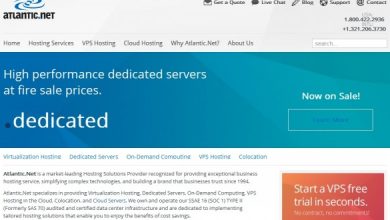
When it comes to launching your online presence, few decisions are as crucial as choosing a web hosting plan. It’s the digital home for your website, and understanding the cost involved is paramount. In this comprehensive guide, we’ll take you on a journey through the world of web hosting costs, shedding light on the different types of hosting services, the factors that influence costs, and the breakdown of expenses.
The monthly rate for hosting your own website is really not as much as everyone thinks it is. The average cost of hosting a website is usually not much over $150.00 for a year. This is usually including your own domain and lots of features. You want a hosting site that has a great customer service that you can get to if you experience any downtime or issues with your website. A hosting service that helps you get through your set up and offers trouble shooting if you are having issues is the best. Once you are up and running you may not need as much help, but there is nothing wrong with getting a little help to begin with.
The best way to get the most out of it when you spend the cost of hosting a website is to do research on the different hosting sites that you can use. You want a site that will be easy to use, and have all the functionality you need. You want to be able to easily upload photos, and videos to your website as well as link to other websites.
A good hosting site to check out is Web Hosting Hub company. The Web Hosting Hub has a small monthly price with which you can enjoy unlimited band width. This is fantastic for whether you want to set up a personal or a business account. For less than five dollars each one of these sites will let you run an efficient and lovely website that you can be proud of. Some people think at you have to shell out hundreds of dollars for the cost to host a website. The truth is that you really do not need that much start up money for an amazing website.
Whether you’re a budding blogger or an e-commerce entrepreneur, knowing how much it costs to host a website will empower you to make informed decisions about your online venture.
The Basics of Web Hosting Costs
Let’s start with the basics. When we talk about the cost of hosting a website, we’re essentially discussing the expenses associated with leasing space on a web server. Think of it as renting a storefront in a digital shopping mall. Just as physical stores have rent, utilities, and maintenance costs, websites incur expenses for hosting services.
Types of Web Hosting Services
To grasp hosting costs better, it’s crucial to understand the various types of web hosting services available. Each type caters to different website needs and comes with its own pricing structure. Here’s a glimpse:
Shared Hosting: Imagine sharing an apartment with roommates. Shared hosting is similar—you share server resources with other websites. It’s cost-effective and ideal for small websites or beginners.
VPS Hosting: This is akin to renting a condominium. You have more control and resources compared to shared hosting. VPS hosting suits websites with moderate traffic and resource demands.
Dedicated Hosting: Think of dedicated hosting as owning a standalone house. You have the entire server to yourself, making it ideal for high-traffic websites or businesses with specific requirements.
Cloud Hosting: Picture cloud hosting as renting office space in a skyscraper. It offers scalability and flexibility. You pay for what you use, making it suitable for websites with fluctuating traffic.
Factors Influencing Hosting Costs
Now that we’ve introduced the types of hosting services, let’s dive into the factors that influence hosting costs. These factors play a pivotal role in determining how much you’ll pay for hosting:
Website Size and Complexity: Just as larger homes come with higher rent, larger and more complex websites require more server resources, which can increase hosting costs.
Traffic Volume: Hosting costs can spike if your website experiences high traffic regularly. More visitors demand more server resources, leading to higher expenses.
E-commerce Requirements: If you’re running an online store, you may need additional features like secure payment processing and e-commerce optimization, which can add to hosting expenses.
Security Needs: Websites with stringent security requirements, such as SSL certificates and DDoS protection, may incur additional costs to safeguard data and user information.
Cost Breakdown of Shared Hosting
Now, let’s dissect the cost breakdown of shared hosting, a popular choice for beginners and small websites. Shared hosting is like renting a room in a shared apartment—it’s cost-effective but comes with certain limitations.
Monthly and Annual Pricing: Shared hosting plans are often offered on a monthly or annual basis. Monthly plans provide flexibility, while annual plans may offer cost savings.
Additional Costs: Beyond the base hosting fee, there are additional expenses to consider, such as domain registration and SSL certificates. These are essential for establishing your online identity and securing your website.
Promotions and Discounts: Many hosting providers offer promotional pricing for the first term of your hosting plan. Be aware that the cost may increase when the promotional period expires, so it’s crucial to understand the long-term pricing.
Cost Breakdown of VPS Hosting
VPS hosting, or Virtual Private Server hosting, offers a more spacious digital abode than shared hosting. It’s akin to renting a condominium rather than a room in a shared apartment. Let’s delve into the cost breakdown of VPS hosting:
Pricing Tiers and Resources: VPS hosting plans come in various tiers, each offering a different allocation of server resources. The pricing often corresponds to the amount of CPU, RAM, and storage you receive. As you ascend the tiers, you’ll enjoy more resources but at a higher cost.
Customization Options: VPS hosting allows for greater customization. You can choose the operating system, control panel, and software configurations to tailor your hosting environment. While this flexibility is beneficial, it can also impact costs, as specialized software or licenses may come at an extra expense.
Management Levels: VPS hosting can be managed or unmanaged. Managed plans come with technical support and server management, ensuring you don’t need to worry about server-related tasks. Unmanaged plans, on the other hand, require you to handle server maintenance, which can lead to cost savings but demands technical expertise.
Cost Breakdown of Dedicated Hosting
Imagine having an entire house to yourself—that’s the essence of dedicated hosting. It offers unparalleled control and resources but comes at a higher price. Here’s a closer look at the cost breakdown of dedicated hosting:
Hardware Specifications and Pricing: Dedicated hosting plans are distinguished by their hardware specifications. You can choose the CPU, RAM, storage, and other hardware components to meet your website’s unique requirements. However, the cost increases with the level of customization and hardware performance.
Data Center Location: The location of the data center housing your dedicated server can influence costs. Data centers in prime locations may come with higher rental fees. The proximity of the data center to your target audience can also affect website performance, making it an essential consideration.
Managed vs. Unmanaged Dedicated Hosting: Similar to VPS hosting, dedicated hosting can be managed or unmanaged. Managed dedicated hosting includes server management, technical support, and maintenance services, which contribute to higher costs. Unmanaged hosting requires you to handle server administration independently, potentially reducing expenses but demanding technical expertise.
Cost Breakdown of Cloud Hosting
Cloud hosting is like renting office space in a skyscraper. It offers scalability and flexibility, and you pay for the resources you consume. Here’s a look at the cost breakdown of cloud hosting:
Pay-as-You-Go vs. Fixed Pricing: Cloud hosting providers typically offer two pricing models—pay-as-you-go and fixed pricing. With pay-as-you-go, you’re billed based on your actual resource usage, which can be cost-effective for websites with fluctuating traffic. Fixed pricing offers a predictable monthly or annual fee, simplifying budgeting but potentially costing more if you consistently use fewer resources.
Scalability Costs: Scalability is one of the key advantages of cloud hosting. You can easily scale your resources up or down based on demand. While this flexibility is invaluable, it’s essential to understand the pricing structure for scaling resources, as sudden spikes in traffic can lead to higher costs.
Data Transfer and Storage Expenses: Cloud hosting providers often charge for data transfer (bandwidth) and storage separately. The cost of data transfer can vary based on the volume of data your website sends and receives. Storage costs depend on the amount of data stored in the cloud.
Now that we’ve explored the cost breakdowns of various hosting types, you might be wondering about hidden costs and extra fees associated with web hosting. In the next section, we’ll unveil these hidden expenses that could impact your hosting budget. We’ll also discuss the impact of website builders on hosting costs and dive into the realm of e-commerce hosting expenses. So, if you’re seeking a comprehensive understanding of web hosting costs, keep reading as we uncover the full picture.
Hidden Costs and Extra Fees
Web hosting costs go beyond the apparent price of your hosting plan. Hidden costs and extra fees can catch you off guard if you’re not vigilant. It’s essential to be aware of these potential expenses:
Bandwidth Overage Charges: While many hosting plans offer unlimited bandwidth, some may have limitations. If your website exceeds the allocated bandwidth, you could incur overage charges. It’s crucial to understand your hosting provider’s policy regarding bandwidth usage.
Domain Renewal Costs: Registering a domain is a one-time expense, but domain renewal is an ongoing cost. Domain registration fees can vary based on the domain extension (e.g., .com, .net) and the domain registrar. Be prepared for annual renewal fees to maintain ownership of your domain name.
Backup and Recovery Fees: Some hosting providers offer basic backup services as part of their plans, while others charge extra for automated backups and data recovery. Regular backups are crucial to safeguard your website’s data, but these services may come at an additional cost.
Support and Service Add-Ons: If you require specialized support or services beyond what’s included in your hosting plan, you may need to purchase add-ons. For example, premium technical support, site migration assistance, or security services can incur extra charges.
In the realm of web hosting, knowledge is power. Being aware of potential hidden costs and extra fees empowers you to budget effectively and avoid unexpected financial surprises.
But that’s not all. The impact of website builders on hosting costs is a significant consideration, especially for those looking for an all-in-one solution for building and hosting their websites. In the next section, we’ll explore how website builders can influence your hosting expenses and whether they offer a cost-effective alternative.
The Impact of Website Builders on Costs
Website builders have gained popularity as user-friendly tools that simplify website creation. They offer pre-designed templates, drag-and-drop functionality, and built-in features, making it easier for individuals and small businesses to establish an online presence. But how do website builders affect hosting costs?
Website Builder vs. Traditional Hosting
Traditional hosting, whether shared, VPS, dedicated, or cloud, provides you with server space where you can install and manage your website. You have complete control over your site’s design and functionality. In contrast, website builders are all-in-one platforms that combine hosting and website creation tools.
With a website builder, you don’t need to worry about server configurations, software installations, or coding. Everything you need to design, publish, and manage your website is available within the builder’s interface.
Pricing Models of Popular Website Builders
Website builders often offer tiered pricing plans, similar to traditional hosting. The key difference lies in the pricing structure:
- Free Plans: Many website builders offer free plans with limited features and branding from the website builder. While these plans can be cost-effective for personal websites or experiments, they may not be suitable for professional or business websites.
- Paid Plans: Paid plans vary in price and features, depending on the website builder. These plans typically remove branding, offer more storage, and provide access to premium templates and features. The cost can range from a few dollars per month to higher-tier plans for e-commerce or advanced functionality.
- E-commerce Plans: If you’re running an online store, some website builders offer specialized e-commerce plans. These plans come with features tailored for online selling, such as shopping carts, payment processing, and inventory management. E-commerce plans often have higher monthly costs compared to standard plans.
While website builders simplify the website creation process, it’s essential to weigh the cost of convenience against the level of control and customization you require. For individuals or small businesses looking for a straightforward and cost-effective solution, website builders can be an excellent choice. However, larger businesses or those with specific design and functionality needs may prefer traditional hosting for more control and flexibility.
In our next section, we’ll dive into the world of e-commerce hosting costs, where specialized hosting solutions cater to the unique requirements of online stores. Whether you’re selling handmade crafts or managing a digital marketplace, understanding the expenses associated with e-commerce hosting is essential to budget effectively.
E-commerce Hosting Costs
E-commerce websites have distinct needs compared to standard websites. They handle online transactions, manage product catalogs, and require secure payment processing. As a result, e-commerce hosting plans are tailored to meet these requirements. Let’s explore the factors that influence e-commerce hosting costs:
Specialized E-commerce Hosting Providers: Some hosting companies specialize in e-commerce hosting. They offer hosting plans designed to support online stores, with features like SSL certificates, secure payment gateways, and shopping cart integration. These plans often come with a higher monthly cost than standard hosting.
Payment Processing Fees: When you sell products or services online, you’ll likely incur payment processing fees. Payment gateways, such as PayPal or Stripe, charge fees for processing credit card transactions. These fees can vary based on the payment gateway and your sales volume.
Security and Compliance Expenses: E-commerce websites must prioritize security to protect customer data and ensure secure transactions. Expenses related to security measures, such as SSL certificates, DDoS protection, and compliance with industry standards (e.g., PCI DSS for credit card security), can impact hosting costs.
E-commerce hosting costs can vary widely depending on your business size, the number of products you offer, and your chosen hosting provider. It’s essential to assess your specific needs and budget when selecting an e-commerce hosting plan.
As we continue our exploration of web hosting costs, we’ll delve into the realm of website security. Security is a critical aspect of hosting, and understanding the expenses associated with safeguarding your website is crucial to maintaining a trustworthy online presence.
Security in Unlimited Hosting
When you think of hosting, security might not be the first thing that comes to mind, but it’s a critical aspect of maintaining a trustworthy online presence. Websites, especially those handling sensitive data or transactions, are prime targets for cyber threats. In this section, we’ll discuss the security considerations for websites hosted on unlimited hosting plans:
SSL Certificates and Their Pricing: SSL (Secure Sockets Layer) certificates play a pivotal role in securing the connection between your website and your visitors’ browsers. They encrypt data transmission, ensuring that sensitive information, such as login credentials or payment details, remains confidential. Many hosting providers offer free SSL certificates as part of their hosting packages. However, some may charge extra for advanced SSL options, such as Extended Validation (EV) certificates, which offer additional trust indicators.
DDoS Protection Costs: Distributed Denial of Service (DDoS) attacks can disrupt your website’s availability by overwhelming it with traffic. Hosting providers often include basic DDoS protection in their plans. However, more robust DDoS protection solutions may be available for an additional fee. These advanced protections can help safeguard your website from large-scale attacks.
Website Security Software Expenses: To bolster your website’s security, you may choose to invest in additional security software or services. This can include firewall applications, malware scanners, and vulnerability assessments. While some hosting providers offer basic security features, more comprehensive security solutions may come at an extra cost.
Prioritizing website security is essential to protect your online presence and the trust of your visitors. When considering unlimited hosting plans, inquire about the security features included and assess whether additional security measures are necessary for your specific needs.
In the next section, we’ll explore another crucial aspect of web hosting—uptime and reliability. Your website’s accessibility is paramount, and understanding the impact of uptime on user experience is vital.
Uptime and Reliability
Uptime refers to the amount of time that a web hosting server remains operational and accessible to users. It’s a critical metric because it directly affects your website’s availability. A reliable hosting provider strives for high uptime percentages, ensuring that your website is accessible to visitors whenever they want to access it.
The Importance of Uptime
- High uptime is crucial for online businesses, as website downtime can lead to lost revenue and a negative user experience.
- Search engines like Google consider uptime when ranking websites. Frequent downtime can negatively impact your search engine rankings.
- Users expect websites to be available 24/7. A website that frequently experiences downtime can erode user trust and reputation.
How Uptime is Measured
- Uptime is typically expressed as a percentage. For example, a hosting provider may guarantee 99.9% uptime.
- To calculate uptime, divide the total time the server is operational by the total time in a given period (usually a month). Multiply the result by 100 to get the percentage.
Service Level Agreements (SLAs)
- Hosting providers often offer SLAs that specify the level of uptime they guarantee. These SLAs may come with compensation if the hosting provider fails to meet the specified uptime level.
Monitoring and Ensuring Uptime
- Hosting providers employ various measures to ensure uptime, including redundant hardware, data center infrastructure, and 24/7 monitoring.
- Regular maintenance and updates are typically performed during off-peak hours to minimize disruptions.
Understanding the importance of uptime and the measures taken by your hosting provider to maintain it is essential. Frequent downtime can lead to a loss of visitors, revenue, and trust.
Content Delivery Networks (CDNs) and Their Costs
Content Delivery Networks (CDNs) are distributed networks of servers that work together to deliver web content, such as images, videos, and scripts, to users based on their geographic location. CDNs play a crucial role in improving website performance and reducing load times. Let’s explore CDNs and their costs:
How CDNs Work: CDNs cache and distribute website content to multiple server locations strategically positioned around the world. When a user requests a webpage, the CDN delivers content from the nearest server, reducing latency and load times.
Pricing Structures of Major CDNs: CDNs typically offer pricing based on the volume of data transferred (bandwidth) and the number of requests made to the CDN servers. Pricing can vary between CDN providers, and some may offer pay-as-you-go models or fixed pricing plans.
Benefits of Using a CDN: CDNs offer several benefits, including faster load times, improved website performance, and enhanced security against DDoS attacks. While CDNs may come with an additional cost, the advantages they offer often outweigh the expense, especially for websites with a global audience.
Scalability Costs
Website traffic can be unpredictable, with surges in visitors during marketing campaigns, product launches, or special events. Scaling your hosting resources to accommodate increased traffic is essential to ensure a seamless user experience. Let’s delve into scalability costs:
Scaling Up vs. Scaling Out: There are two primary approaches to scaling hosting resources—scaling up and scaling out. Scaling up involves upgrading your existing hosting plan to a higher tier with more resources, such as CPU and RAM. Scaling out, on the other hand, involves adding additional servers or resources to distribute the load. The cost of scaling can vary depending on your hosting provider and the method you choose.
Cost Considerations When Expanding: When scaling your hosting resources, consider the cost implications. Upgrading to a higher hosting tier often comes with a higher monthly or annual fee. Scaling out by adding additional servers or cloud resources may incur additional expenses. It’s essential to plan and budget for scalability to accommodate traffic spikes without compromising website performance.
Avoiding Over-Provisioning: While it’s crucial to ensure your website can handle increased traffic, over-provisioning (purchasing excessive resources) can lead to unnecessary expenses. Hosting providers often offer monitoring and scaling features to help you optimize your resources and avoid over-spending.
As we’ve explored the intricate details of web hosting costs, you might be feeling overwhelmed by the multitude of factors and options to consider. In the next section, we’ll simplify the process by providing practical tips for cost optimization. Whether you’re a budget-conscious blogger or a growing e-commerce entrepreneur, these tips will help you make the most of your hosting investment.
Tips for Cost Optimization
Optimizing hosting costs is essential for businesses and individuals alike. By strategically managing your hosting expenses, you can maintain a reliable online presence without breaking the bank. Here are some practical tips for cost optimization:
Choosing the Right Hosting Plan: Select a hosting plan that aligns with your website’s needs. Avoid overpaying for resources you won’t use or underestimating your requirements, leading to performance issues. A well-matched hosting plan ensures cost-efficiency.
Leveraging Discounts and Promotions: Hosting providers often offer discounts and promotions, especially for new customers. Take advantage of these offers to reduce your initial hosting costs. However, be mindful of renewal prices, as they may differ from the promotional rates.
Monitoring and Managing Resource Usage: Regularly monitor your website’s resource usage, such as CPU and RAM. Many hosting control panels provide insights into resource consumption. By optimizing your website’s performance, you can potentially downgrade to a lower-cost hosting plan if appropriate.
Consider Long-Term Commitments: Some hosting providers offer significant discounts for annual or multi-year commitments. While this may require a larger upfront investment, it can result in substantial cost savings over time.
Review and Cancel Unnecessary Add-Ons: Periodically review your hosting plan and cancel any add-ons or services you no longer require. For example, if you’ve added security services but have since implemented other security measures, consider discontinuing redundant services.
Explore Alternate Hosting Providers: Don’t hesitate to explore alternative hosting providers when your hosting plan is up for renewal. Compare pricing, features, and customer reviews to find the best value for your hosting investment.
By implementing these cost optimization strategies, you can effectively manage your hosting expenses while maintaining a reliable online presence. As you navigate the world of web hosting costs, remember that your choice of hosting provider plays a significant role in your overall experience. In our final sections, we’ll guide you through a cost comparison of hosting providers and present budget-friendly hosting alternatives for those seeking economical options.
Cost Comparison Across Hosting Providers
The hosting industry boasts a multitude of providers, each offering a range of hosting plans with varying features and pricing. Conducting a cost comparison across hosting providers is essential to ensure you get the best value for your investment. Here’s how to approach the process:
Researching and Comparing Hosting Plans: Begin by researching hosting providers that align with your website’s needs. Consider factors such as hosting type, resources, and included features. Create a list of hosting providers that offer plans suitable for your requirements.
Real-World Examples of Hosting Costs: To illustrate the cost differences among hosting providers, we’ll provide some real-world examples:
- Provider A: Offers shared hosting starting at $3.95 per month with a free domain.
- Provider B: Specializes in VPS hosting, with plans starting at $20 per month.
- Provider C: Focuses on dedicated hosting, with prices ranging from $79 to $199 per month.
- Provider D: Provides cloud hosting with pay-as-you-go pricing, allowing you to pay only for the resources you use.
Consideration of Hidden Costs: Beyond the base hosting price, consider hidden costs such as domain registration, SSL certificates, and additional services. These costs can vary among hosting providers and impact your overall budget.
Customer Reviews and Reputation: Read customer reviews and assess the reputation of hosting providers. Reliable customer support, server uptime, and overall user satisfaction are essential factors to consider when comparing hosting providers.
Evaluating Long-Term Costs: While initial pricing is important, consider the long-term costs of hosting. Examine renewal rates, as some providers may offer lower introductory prices that increase upon renewal.
By conducting a thorough cost comparison, you can make an informed decision and select a hosting provider that not only fits your budget but also meets your performance and support needs.
Budget-Friendly Hosting Alternatives
For individuals and small businesses seeking budget-friendly hosting alternatives, several options can help reduce hosting costs without compromising quality. Here are some economical hosting alternatives to consider:
Free Hosting: While limited in features and resources, free hosting options are available for those on a tight budget. Keep in mind that free hosting may come with ads, restrictions, and limited support.
Shared Hosting: Shared hosting plans are among the most budget-friendly options. They are suitable for small websites, blogs, and personal projects. Many hosting providers offer shared hosting plans with affordable monthly rates.
Website Builders: Website builder platforms often include hosting as part of their packages. These all-in-one solutions offer simplicity and cost-effectiveness for individuals and small businesses looking to establish an online presence quickly.
Nonprofit and Education Discounts: Some hosting providers offer discounts to nonprofit organizations and educational institutions. If you fall into one of these categories, inquire about special pricing or programs designed to support your sector.
Reseller Hosting: Reseller hosting allows you to purchase hosting resources in bulk and resell them to clients or colleagues. While this option requires more management, it can be cost-effective if you have multiple websites to host.
Consideration of Renewal Rates: When opting for budget-friendly hosting alternatives, pay attention to renewal rates. Some providers may offer low introductory prices that increase significantly upon renewal. Ensure that the long-term costs align with your budget.
Open Source Content Management Systems (CMS): Using open source CMS platforms like WordPress or Joomla can save on website development costs. Many hosting providers offer one-click installations for these platforms, simplifying the setup process.
By exploring these budget-friendly hosting alternatives and carefully assessing your needs, you can find a hosting solution that provides excellent value without straining your budget.
Conclusion
In the world of web hosting, understanding the costs involved is essential for making informed decisions about your online presence. From shared hosting for beginners to dedicated servers for enterprises, the hosting landscape offers a wide range of options to suit various needs and budgets.
As you embark on your web hosting journey, consider factors such as the type of hosting, resource requirements, scalability, security, and hidden costs. Choose a hosting provider that aligns with your goals and budget, and explore cost optimization strategies to make the most of your hosting investment.
Whether you’re a blogger, entrepreneur, or organization, web hosting is a foundational element of your online presence. By gaining a comprehensive understanding of web hosting costs and making thoughtful choices, you can establish a reliable and cost-effective digital home for your website.
In this digital age, your website serves as the gateway to your online audience. Make the choice that not only suits your budget but also supports your vision and goals. As you navigate the dynamic landscape of web hosting, may your online journey be smooth, secure, and successful.
In conclusion, the cost of hosting a website encompasses various factors, including the type of hosting, resource requirements, security needs, and the choice of hosting provider. By understanding these cost factors and exploring budget-friendly hosting alternatives, you can make informed decisions to establish and maintain your online presence effectively. Whether you’re a blogger, business owner, or nonprofit organization, web hosting is a critical element of your digital journey. Choose wisely, plan for scalability, and prioritize security to ensure your website thrives in the digital landscape.
In the digital realm, your website is your digital storefront, and hosting is the foundation that supports its existence. Make the right choices, consider long-term implications, and embrace the opportunities that the online world offers. With the right hosting solution, your website can reach new heights, engage a global audience, and achieve your online goals.
There are several hundred hosting sites out there, and it is important that you do not rush into using a certain hosting program. When you are planning out a budget for your website you may find that the cost of advertising is more than a hosting website’s fees. If you are setting up a website that is going to make you money then you will more than likely make your money back quickly with the right hosting site. Just remember to read hosting reviews online and to take advice from people who already have their websites up and running. Lots of sites will offer you a trial period so that you can try out their services without any long term commitment. Taking advantage of the trial period will help you make your decisions.
[button color=”blue” size=”big” link=”https://www.pouted.com/offer/webhostinghub/” target=”blank” ]Get 50% OFF WebHostingHub Discount Today Only[/button]



![Why 000webhost Will Help Your Business to Grow? [Detailed Review] 3 Web hosting 5 Why 000webhost Will Help Your Business to Grow? [Detailed Review] - 3 Web Hosting Costs](https://www.pouted.com/wp-content/uploads/2017/12/Web-hosting-5-390x220.jpg?x34696)

![Why Is Hostpapa Suitable for Your Small Business? .. [Detailed Review] 5 laptop web hosting Why Is Hostpapa Suitable for Your Small Business? .. [Detailed Review] - 4 Web Hosting Costs](https://www.pouted.com/wp-content/uploads/2018/11/laptop-web-hosting-390x220.jpg?x34696)


